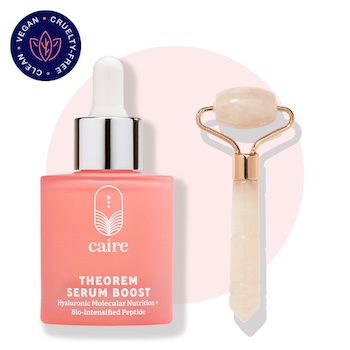Menopause can bring many changes to your body, and maintaining proper nutrition becomes even more important during this time. Vitamin D plays a key role in women’s health as they go through menopause. This essential nutrient helps keep your bones strong, supports your immune system, and may even reduce some common menopausal symptoms.
Women going through menopause often need more vitamin D to protect their bone health and overall well-being. As estrogen levels drop, your body loses some of its natural ability to absorb and use vitamin D effectively. This can put you at higher risk for conditions like osteoporosis if you don’t get enough.
Getting enough vitamin D isn’t always easy, especially if you live in areas with less sunlight. You may need to consider vitamin D supplements or focus on eating more vitamin D-rich foods. Talk to your doctor about testing your vitamin D levels and deciding on the right approach for you during menopause.
The Interplay Between Menopause and Vitamin D
Menopause brings changes to women’s bodies that can affect vitamin D levels. These shifts have important impacts on health and well-being.
Hormonal Shifts during Menopause
During menopause, your body produces less estrogen. This drop in estrogen can lead to bone loss and a higher risk of fractures. Your skin also becomes less efficient at making vitamin D from sunlight.
Vitamin D works with estrogen to keep your bones strong. As estrogen decreases, you need more vitamin D to protect your bones.
Low estrogen can cause other symptoms like hot flashes and mood changes. Getting enough vitamin D may help ease some of these issues.
Vitamin D’s Role in Women’s Health
Vitamin D is key for your health after menopause. It helps your body absorb calcium and maintain strong bones. This is crucial as you lose bone density.
Your body needs vitamin D to fight off illnesses. It boosts your immune system and may lower your risk of some cancers.
Many postmenopausal women don’t get enough vitamin D. This can lead to vitamin D deficiency. Signs include:
- Bone pain
- Muscle weakness
- Higher risk of falls
Your doctor can check your 25-hydroxyvitamin D levels with a blood test. If they’re low, you may need supplements.
Bone Health and Osteoporosis Risk in Menopausal Women
Menopause brings big changes to your bones. Your risk of osteoporosis and fractures goes up as you lose bone density. Taking steps to protect your bones is key during this time.
Importance of Calcium and Vitamin D
Your body needs calcium to keep bones strong. But during menopause, you absorb less calcium from food. Vitamin D helps your body use calcium better. Aim for 1,200 mg of calcium and 600-800 IU of vitamin D daily.
Good calcium sources:
- Dairy products
- Leafy greens
- Fortified foods
Vitamin D sources:
- Sunlight
- Fatty fish
- Egg yolks
- Fortified milk
Talk to your doctor about supplements if you can’t get enough from food. They can test your levels and suggest the right doses for you.
Preventing Fractures and Safeguarding Bone Mineral Density
Bone loss speeds up in the first 5 years after menopause. This raises your risk of breaks, especially in your hip, spine, and wrist. To protect your bones:
- Stay active with weight-bearing exercise
- Do balance training to prevent falls
- Quit smoking
- Limit alcohol
Your doctor may suggest a bone density test to check for osteoporosis. If needed, medications can slow bone loss and lower fracture risk.
Healthy habits now can keep your bones strong for years to come. Don’t wait to take action – your future self will thank you.
Vitamin D and Cancer Prevention after Menopause
Vitamin D may play a role in reducing cancer risks for postmenopausal women. It affects cell growth and immune function in ways that could help protect against certain cancers.
Breast Cancer and Vitamin D
Vitamin D levels seem to affect breast cancer risk in postmenopausal women. A study found that women who took 2,000 IU of vitamin D daily for a year had lower blood estrogen levels. High estrogen is linked to breast cancer risk.
Your body makes vitamin D when your skin is exposed to sunlight. But as you age, your skin becomes less able to produce vitamin D. This makes getting enough from food or supplements more important after menopause.
Some studies suggest higher vitamin D levels may lower breast cancer risk. But more research is needed to know for sure. Talk to your doctor about testing your vitamin D levels and if supplements are right for you.
The Role of Vitamin D in Reducing Cancer Risks
Vitamin D affects how cells grow and die. It also supports your immune system. These functions may help protect against different types of cancer.
Your body has vitamin D receptors in many tissues. This allows vitamin D to affect cell growth throughout your body. It may help stop cancer cells from growing or spreading.
Some studies link higher vitamin D levels to lower risks of colorectal cancer. But the link isn’t as clear for other cancer types. More studies are needed to understand how vitamin D affects cancer risk.
Getting too much sun raises skin cancer risk. It’s best to get vitamin D from diet and supplements. Aim for 600-800 IU daily, but check with your doctor about the right amount for you.
Effects of Vitamin D on Aging and Skin Health
Vitamin D plays a key role in skin health and aging. It helps protect against damage from sun exposure while also supporting skin cell growth and repair.
Sunlight Exposure and Skin Aging
Your skin makes vitamin D when exposed to sunlight. This process slows as you age, making it harder to get enough vitamin D. Too much sun can speed up skin aging and raise skin cancer risk. But some sun is needed for vitamin D production.
Aim for 10-15 minutes of sun on your arms and legs a few times a week. Use sunscreen on your face and hands daily. This gives you vitamin D benefits while limiting skin damage.
Vitamin D helps your skin cells grow and fix damage. It may slow down signs of aging like wrinkles and spots. The vitamin also boosts your skin’s ability to heal from cuts and burns.
Preventing Skin Conditions and Optimizing Health
Getting enough vitamin D can help prevent some skin issues. It may lower your risk of psoriasis flare-ups and eczema. The vitamin also supports your immune system, which helps fight skin infections.
Vitamin D might protect against certain skin cancers. It helps control cell growth and may stop cancer cells from spreading. But more research is needed to know for sure.
As you age, your skin gets thinner and more fragile. Vitamin D helps keep your skin strong and healthy. It works with calcium to build and fix skin tissue.
To boost your vitamin D, as mentioned – eat fatty fish, egg yolks, and fortified foods. You can also take a supplement if your doctor says it’s okay.
Mental and Emotional Well-being during Menopause
Menopause can affect your mental and emotional health. Vitamin D may help with mood and thinking during this time.
Vitamin D’s Impact on Depression and Mood Swings
Vitamin D might boost your mood during menopause. Some studies show it can help with depression symptoms. This is good news if you feel down more often.
Low vitamin D levels may make mood swings worse. Getting enough of this vitamin could help even out your emotions. You might notice fewer ups and downs in how you feel each day.
Vitamin D may also ease hot flashes and night sweats. These symptoms can upset your mood, so less of them could mean you feel better.
Cognitive Function and Sleep Quality
Your thinking skills might change during menopause. Vitamin D could help keep your mind sharp. It may boost memory and help you focus better.
Sleep problems are common in menopause. Vitamin D might help you sleep better. Good sleep is key for clear thinking and a stable mood.
Getting enough vitamin D may reduce night sweats. Less sweating at night means better sleep for you. This can lead to better focus during the day.
Vitamin D and Metabolic Health in Menopausal Women
Vitamin D plays a key role in metabolic health for women going through menopause. It can help manage weight and lower the risk of diabetes and other metabolic issues.
Managing Weight Gain and Obesity
Vitamin D may help you control your weight during menopause. Low vitamin D levels are linked to more body fat and higher BMI in menopausal women.
Getting enough vitamin D could make it easier to maintain a healthy weight. It may boost your metabolism and help your body burn fat more easily.
Your doctor can check your vitamin D levels and suggest the right amount for you.
Prevention of Diabetes and Metabolic Syndrome
Vitamin D can help protect you from diabetes and metabolic syndrome after menopause. It helps your body use insulin better and control blood sugar.
Not having enough vitamin D raises your risk of:
- Type 2 diabetes
- Insulin resistance
- High blood pressure
- High cholesterol
Getting the right amount of vitamin D may lower these risks. It can help keep your blood sugar steady and improve your body’s response to insulin.
Talk to your doctor about testing your vitamin D levels. They can help you decide if you need more vitamin D from food or supplements.
Cardiovascular Considerations for Menopausal Women
Menopause brings changes that can affect your heart health. Vitamin D may play a role in protecting your cardiovascular system during this time. Let’s look at ways to reduce heart disease risk and how vitamin D might help.
Reducing the Risk of Cardiovascular Disease
After menopause, your risk of heart problems goes up. This happens because estrogen levels drop. To keep your heart healthy:
- Eat a balanced diet with fruits, veggies, and whole grains
- Exercise regularly – aim for 30 minutes most days
- Don’t smoke, and limit alcohol
- Keep a healthy weight
- Control your blood pressure and cholesterol
Your doctor may suggest taking aspirin or other medicines. Regular check-ups are key to catch any issues early.
Vitamin D Supplementation and Heart Health
Vitamin D might help your heart during menopause. Some studies show it can:
- Lower blood pressure
- Improve cholesterol levels
- Help control blood sugar
The best dose isn’t clear yet. Vitamin D3 (cholecalciferol) is often used in supplements.
Talk to your doctor before starting any new supplements. They can check your vitamin D levels and suggest the right amount for you. Remember, vitamin D alone isn’t enough to protect your heart. It works best as part of a healthy lifestyle.
Supplementation Strategies for Vitamin D
Vitamin D supplements can help maintain healthy levels, especially after menopause. There are different forms and recommended amounts to consider.
Recommended Daily Allowance (RDA) for Vitamin D
The RDA for vitamin D in postmenopausal women is 600-800 IU per day. Your doctor may suggest higher doses if you’re deficient. Factors like age, sun exposure, and skin tone can affect your needs.
Take vitamin D with food for better absorption. It’s a fat-soluble vitamin, so pairing it with a meal containing some healthy fats can help.
Supplements come in various strengths. Common options include:
- 400 IU
- 1000 IU
- 2000 IU
- 5000 IU
Your healthcare provider can test your levels and recommend the right dose for you.
Vitamin D2 vs. Vitamin D3
Vitamin D comes in two main forms as supplements: D2 (ergocalciferol) and D3 (cholecalciferol).
Vitamin D3 is usually preferred. Your body makes D3 naturally when your skin is exposed to sunlight.
D3 may raise and maintain vitamin D levels better than D2. It’s often made from sheep’s wool lanolin. Vegan D3 from lichen is also available.
D2 comes from plant sources. It’s less potent than D3 but can still be effective. Some doctors prescribe high-dose D2 for severe deficiency.
Vitamin D’s Role in Immunity and Autoimmune Diseases
Vitamin D plays a key part in your immune system and can affect autoimmune diseases. It helps your body fight germs and may lower the risk of some health issues. Let’s look at how it works during menopause and its link to autoimmune problems.
Strengthening the Immune System during Menopause
Vitamin D boosts your immune system as you go through menopause. It helps make cells that fight germs. These cells include T cells, B cells, and others that keep you healthy.
Your body might not make as much vitamin D after menopause. This can weaken your defenses. You may get sick more often, like with urinary tract infections.
To stay strong, you need enough vitamin D. You can get it from:
- Sunlight
- Foods like fish and eggs
- Supplements
Vitamin D also helps calm inflammation. It can stop your body from making too many inflammatory cytokines. These are proteins that can cause swelling and pain.
Link between Vitamin D and Autoimmune Conditions
Vitamin D may help with autoimmune diseases. In these diseases, your immune system attacks your own body by mistake.
Low vitamin D levels are seen in many autoimmune problems. Some of these are:
- Lupus
- Rheumatoid arthritis
- Multiple sclerosis
Vitamin D can change how your immune cells work. It may stop them from attacking your body. This could make autoimmune symptoms better.
Some studies show that taking vitamin D might help prevent autoimmune diseases. But we need more research to be sure. Talk to your doctor before starting any new supplements.
Musculoskeletal Benefits of Vitamin D in Menopausal Women
Vitamin D plays a key role in maintaining muscle strength and bone health for women after menopause. It helps protect against common issues like muscle weakness and osteoarthritis.
Improving Muscle Strength and Function
Vitamin D can boost muscle strength in menopausal women. Your muscles have special receptors for vitamin D. When you have enough vitamin D, these receptors help your muscles work better.
Low vitamin D levels may lead to muscle weakness. This can make you more likely to fall or get injured. Taking vitamin D supplements might help you stay stronger.
Some studies show that vitamin D can improve muscle function in older women. This means you may be able to do daily tasks more easily. Things like climbing stairs or carrying groceries could become less of a challenge.
Impact on Joint and Overall Skeletal Health
Vitamin D is crucial for your bone health after menopause. It helps your body absorb calcium, which keeps your bones strong. This can lower your risk of fractures and osteoporosis.
Your joints also benefit from vitamin D. It may help reduce inflammation in your body. This could ease pain from conditions like osteoarthritis.
Some research suggests vitamin D might help with fibromyalgia symptoms. This condition causes widespread pain and fatigue. While more studies are needed, vitamin D could be part of a treatment plan.
Vitamin D works with other nutrients to keep your whole skeleton healthy. It supports the structure of your bones and helps maintain bone density.
Complementary Therapies and Lifestyle Factors
Vitamin D plays a key role in managing menopausal symptoms and overall health. It works together with other treatments and can be obtained through various sources.
Synergy with Estrogen Therapy and Calcium Intake
Vitamin D works well with estrogen therapy during menopause. It helps your body absorb calcium better. This combo can strengthen your bones and reduce fracture risk.
Taking vitamin D with calcium supplements boosts its effects. The two nutrients work together to maintain healthy bone density. Your doctor may suggest a specific dosage based on your needs.
Vitamin D also supports calcium homeostasis. This means it helps keep calcium levels balanced in your body. This balance is crucial for bone health and other bodily functions.
Benefits of Sunlight and Dietary Sources
Sunlight is a natural way to boost your vitamin D levels. Spending 10-15 minutes in the sun a few times a week can help. But be careful not to get sunburned.
You can also get vitamin D from food. Fatty fish like salmon and mackerel are good sources. Other options include egg yolks and fortified foods.
Dietary sources may not be enough on their own. You might need supplements too. Talk to your doctor about the right amount for you.
Remember, vitamin D from sunlight and food works just like supplements. It all helps your body in the same way.
Vitamin D is a cornerstone of health for women navigating menopause, supporting bone strength, immune function, and overall well-being. As estrogen levels decline, maintaining adequate vitamin D becomes even more critical to prevent bone loss, reduce the risk of fractures, and manage other menopausal symptoms. By combining sunlight exposure, vitamin D-rich foods, and supplements as needed, you can bolster your body’s resilience. Partnering with your healthcare provider ensures you get the right levels to thrive during this stage of life, promoting longevity and vitality.












